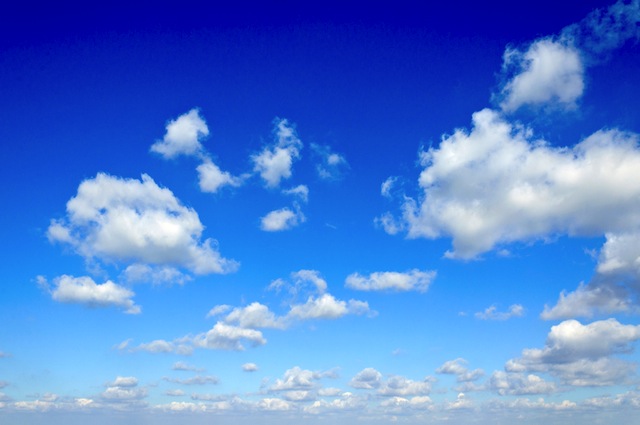Wait! Before you skip over this post because you may not believe in God, substitute a term that does fall into your beliefs: “awe,” “wonder,” “inexplicable beauty,” or “a moment of transcendence.”? Don’t let the words get in the way.? Now ask yourself: Where do you find those things, and where are you when they find you?
It turns out that we often discover the transcendent in the most unexpected or idiosyncratic places. It can literally happen any place. That’s actually really promising – because if God (or whatever) can be there, then God (or whatever) can be anywhere.? And, yes, if He/She/It can be anywhere, then He/She/It can be everywhere. It isn’t something God is doing as much as where we’re looking.
It’s actually amazing what we can find, if we start looking without worrying about what others tell us we should seek.
Rather than start where you’ve been told to look, such as a house of worship or a prayer ritual, begin with where you already find – and build from there. What does this mean, in practical terms?
Step one: Make a short list of your immediate responses to the places (or activities) where you feel you’ve connected to that which is bigger than you, anyplace you’ve encountered that which is more meaningful than you can fully describe. Whatever comes up first is fine, and try not to list more than 5 or 6.
Step two: Place that list under your pillow, or any other spot that is central to how you begin or end your day. It’s just for you, so it doesn’t matter where, as long it’s someplace personal that matters for you and is readily accessible.
Step three: Take out the list once a day and ask yourself, “Where did I find God today?” and/or “Where Did God find me?” Don’t worry if you draw a blank on any given day, or even for many days. Just ask. When you have something new to add to the list, by all means add that new answer. Either way, read the list to yourself before putting it back.
There’s no magic to this process, but for many people who wonder, “Where is God?”, doing this will help you find what you’re looking for – even when, or perhaps especially when, you feel least capable of finding it. It’s actually amazing what we can find, if we start looking without worrying quite so much about where to look, and about what others tell us we should seek.

Listed for many years in Newsweek as one of America’s “50 Most Influential Rabbis” and recognized as one of our nation’s leading “Preachers and Teachers,” by Beliefnet.com, Rabbi Brad Hirschfield serves as the President of Clal–The National Jewish Center for Learning and Leadership, a training institute, think tank, and resource center nurturing religious and intellectual pluralism within the Jewish community, and the wider world, preparing people to meet the biggest challenges we face in our increasingly polarized world.
An ordained Orthodox rabbi who studied for his PhD and taught at The Jewish Theological Seminary, he has also taught the University of Pennsylvania, where he directs an ongoing seminar, and American Jewish University. Rabbi Brad regularly teaches and consults for the US Army and United States Department of Defense, religious organizations — Jewish and Christian — including United Seminary (Methodist), Yeshivat Chovevei Torah (Modern Orthodox) Luther Seminary (Lutheran), and The Jewish Theological Seminary (Conservative) — civic organizations including No Labels, Odyssey Impact, and The Aspen Institute, numerous Jewish Federations, and a variety of communal and family foundations.
Hirschfield is the author and editor of numerous books, including You Don’t Have To Be Wrong For Me To Be Right: Finding Faith Without Fanaticism, writes a column for Religion News Service, and appears regularly on TV and radio in outlets ranging from The Washington Post to Fox News Channel. He is also the founder of the Stand and See Fellowship, which brings hundreds of Christian religious leaders to Israel, preparing them to address the increasing polarization around Middle East issues — and really all currently polarizing issues at home and abroad — with six words, “It’s more complicated than we know.”

